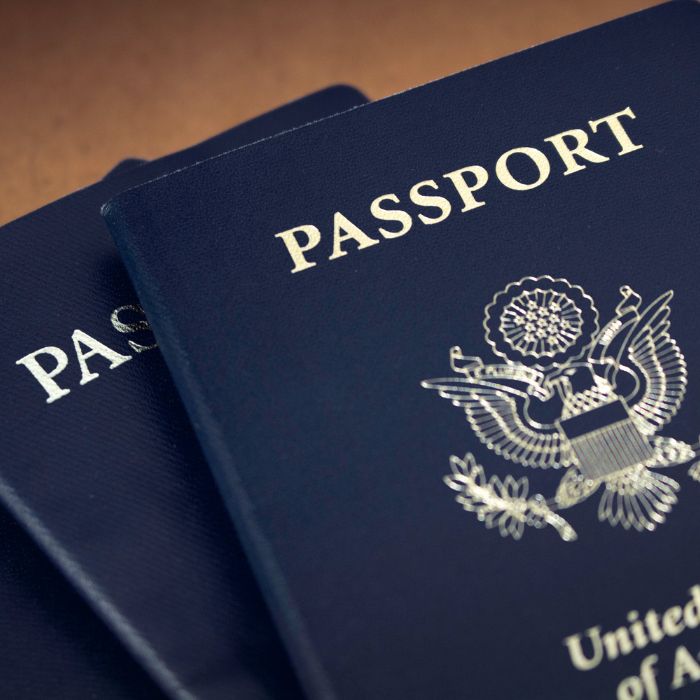DHS Proposal Seeks to Replace Duration of Status Designation with Fixed Periods of Stay for F, J and I Nonimmigrants
September 24, 2020
At a Glance
- The Department of Homeland Security is proposing a regulation that would subject international students, exchange visitors and representatives of foreign information media to fixed periods of stay, eliminating the longstanding “duration of status” policy.
- If the rule is finalized as proposed, F, J and I nonimmigrants would be required to apply for an extension of stay to continue their activities beyond their admission period and fulfill the related biometrics requirements.
- Where F, J and I nonimmigrants stay beyond their fixed periods of stay, they would become subject to the unlawful presence rules currently in place for other nonimmigrant categories.
The issue
The Department of Homeland Security (DHS) is proposing a regulation that seeks to replace the current “duration of status” (D/S) policy for international students (F status), exchange visitors (J status), representatives of foreign information media (I status), and their dependents with a policy that would set a finite expiration date for their authorized stay. If the proposal becomes final, F, J and I nonimmigrants would be admitted to the United States for a specific period of stay and would be required to apply for an extension of stay should they need more time to complete their program, employment, or assignment.
If the proposal is finalized, this change to admissions procedures would also result in a change to current policies related to unlawful presence for F, J and I nonimmigrants, making them subject to the accrual of unlawful presence should they fail to maintain their status or overstay their period of lawful admission to the United States and any related grace periods. Currently, F, J and I nonimmigrants only begin to accrue unlawful presence after USCIS formally finds a nonimmigrant status violation or an immigration judge orders the applicant excluded, deported or removed.
An advance copy of the proposed rule is now available. The rule will be published in the Federal Register on September 25, 2020. DHS will accept public comments on the proposed rule for 30 days after publication.
A closer look at F, J and I admissions
While most nonimmigrants are admitted to the United States until a specific date, F, J and I nonimmigrants have long been allowed to remain in the United States for an unspecified period provided that they engage in the activities authorized under their respective nonimmigrant classifications. A D/S admission for F-1s is the time it takes to complete an academic program and practical training plus a 60-day grace period; for J-1s is the time it takes to participate in the J-1 program plus a 30-day grace period; and for I nonimmigrants is the duration of assignment/employment.
The proposed rule would retire this longstanding practice of admitting F, J and I nonimmigrants for D/S, and bring these classifications in line with other nonimmigrant categories by subjecting them to defined periods of stay. Admission periods are outlined in the proposal as follows:
- F-1s and their dependents: Most F-1s and their dependents would be admitted for up to the length of the principal’s program, including periods of practical training, not to exceed four years, plus a 30-day grace period. The following foreign nationals, however, would be limited to admissions of up to two years:
- Those born in or are citizens of countries listed on the State Sponsor of Terrorism List or who are citizens of countries where there is a 10% or more overstay rate for students and exchange visitors;
- Those attending unaccredited institutions or institutions not enrolled in or in good standing with E-Verify; and
- Those enrolled in language training programs.
Foreign nationals attending high school would receive a 12-month admission.
- J-1s and their dependents: Most J-1s and their dependents would be admitted for up to the length of the principal’s program, not to exceed four years, plus a 30-day grace period, while the following foreign nationals would be limited to admissions of up two years:
- Those who were born in or are citizens of countries listed on the State Sponsor of Terrorism List or who are citizens of countries where there is a 10% or more overstay rate for students and exchange visitors; and
- Those whose program sponsor is not enrolled in or in good standing with E-Verify.
- I nonimmigrants and their dependents: I nonimmigrants and their dependents would be admitted for a period of time necessary to complete their assignment, not to exceed 240 days, unless they hold a passport issued by the People’s Republic of China or Hong Kong Special Administrative Region, in which case their period of stay would not exceed 90 days.
Where F, J or I nonimmigrants require additional time to complete their program, practical training or employment, they would need to file Form I-539, Application to Extend or Change Status, with USCIS and complete biometrics screening. The proposed rule indicates that in order for an extension to be approved, foreign nationals would need to demonstrate compelling academic reasons (i.e., unexpected research problems, inability to take certain required classes, changes in faculty, changes in major, etc.); illness or medical condition; or other circumstances beyond the foreign national’s control.
Where an F, J or I nonimmigrant fails to depart or file to change or extend their status, they would begin to accrue unlawful presence in the same manner as other nonimmigrants.
Other changes to the F, J and I programs
In addition to imposing finite admission periods for F, J and I nonimmigrants, the proposal seeks to make the following changes to these programs:
- Automatic extension of employment authorization for some F-1s: Where a timely extension of stay is filed and remains pending beyond the F-1’s authorized period of admission, F-1s would receive a 180-day automatic extension of STEM employment authorization and on-campus and off-campus employment authorization based on severe economic hardship. This automatic extension of employment authorization would not be available to F-1s using Curricular Practical Training or pre- or post-completion Optional Practical Training.
- Extension of 240-day rule for Js and Is: J and I nonimmigrants who file timely extensions of stay that remain pending beyond their period of admission would receive an automatic extension of employment authorization of up to 240 days, while their extension of stay request is processed.
- Shorter Grace Periods for F-1s: The proposal attempts to replace the current 60-day grace period for F-1s with a 30-day grace period. The grace period is available so that students can prepare to depart the United States or apply for a change of status, following the completion of their program or practical training.
- Extend the cap-gap period from October 1 to April 1: The proposal also seeks to extend cap-gap work authorization and extensions of stay for F-1 nonimmigrants who file a timely H-1B cap petition. In order to prevent disruptions in employment authorization that may result from delayed H-1B cap adjudications, the rule would push back the cap-gap end date from October 1 to April 1 of the fiscal year for which H-1B status is sought.
- Potential J-1 extensions during H-1B cap adjudications: Where there are delays in H-1B cap adjudications, the rule would give DHS the option of extending the status of J-1 exchange visitors while their H-1B cap case is adjudicated.
What this means
If finalized as proposed, the regulation would create significant new compliance and administrative responsibilities for affected foreign nationals and their schools, exchange program sponsors, and employers. In addition, the regulation would dramatically increase the number of applications to extend nonimmigrant status filed with USCIS, exacerbating already extensive USCIS processing delays.
What’s next for the proposed rule
After the rule is published in the Federal Register on September 25, the public will have 30 days to comment on the rule. DHS will then review the feedback and prepare to issue a final rule in the Federal Register. Some aspects of the rule could be revised based on public feedback. There is no set timeframe for publication of a final rule, though the process typically takes several months.
Comments from the academic and business communities will be important to make the agency aware of the impact of the rule on schools, businesses, and U.S. competitiveness in the competition for global talent. If your organization wishes to comment on the proposed rule, please contact your designated Fragomen professional or the firm’s Government Strategies and Compliance Group.
Fragomen is closely following the implementation of this proposal and will provide updates.
This alert is for informational purposes only. If you have any questions, please contact the immigration professional with whom you work at Fragomen.














